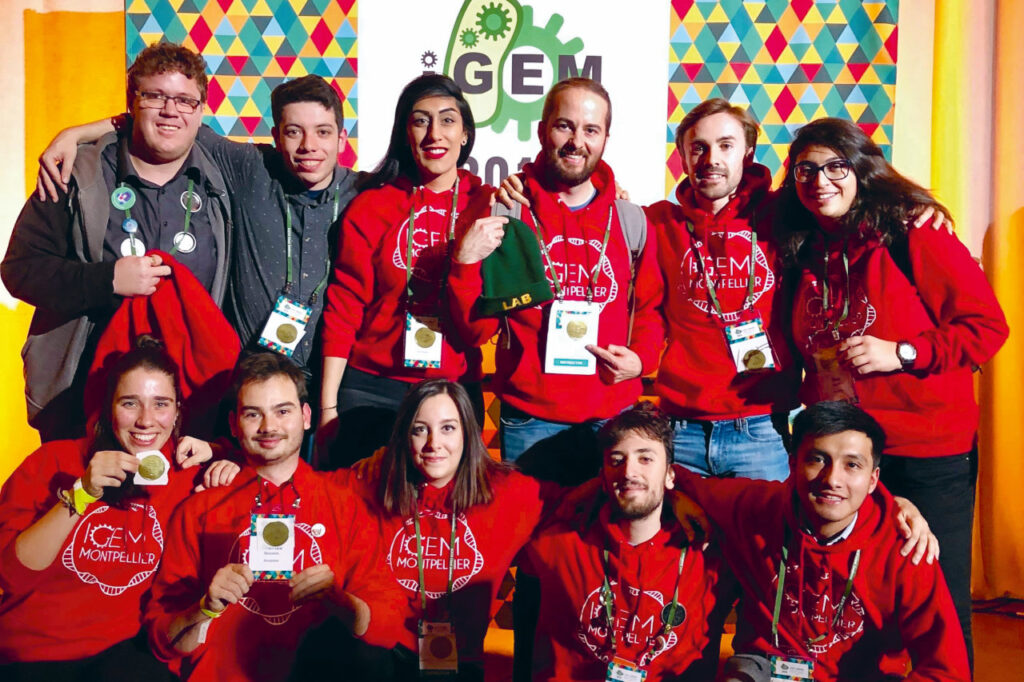[LUM#12] Karma's Seekers
Imagine a molecular scissors capable of breaking down a protein by cutting it exactly where you want. Karma is the name of this project carried out by fourteen students from Montpellier and awarded a prize at the prestigious international synthetic biology competition held annually in Boston.

"In many diseases such as cancer or Alzheimer's, research has identified the role played by certain proteins in the development of the disease," explains Thomas Bessede, a student in the BIOTIN Master's program (Master's in Health Biology). Current drugs use chemical molecules to block them." The problem is that these pharmaceutical molecules do not always target the proteins responsible and therefore cause side effects.
Molecules capable of breaking down proteins exist naturally in our bodies; these are called proteases. Some of these are highly specific and can effectively target a particular type of protein. "Unfortunately," explains Elsa Frisot, a PhD student at CBS and team supervisor, "we don't have a specific protease for each type of protein, and although non-specific proteases do exist, they can cause side effects."
A head-seeker
The fourteen students participating in the IGEM (International Genetically Engineered Machine) competition set to work on this problem and came up with a revolutionary molecular tool: protein scissors capable of degrading proteins in a highly targeted manner. "We were inspired by the CRISPR cas 9 tool, a genetic scissor that can target and cut a specific DNA sequence," explains Thomas Bessede.
To develop this tool, the team focused on antibodies, whose strength lies in their ability to target a specific protein, acting like a kind of "seeking head. " "Today, in the lab, we are able to design antibodies for anything. Each antibody has the ability to bind to a specific target." Among these antibodies, the IGEM team selected VHH and fused it with a non-specific protease in order to bring it to the desired target.
A successful experience
To observe the effect of the Karma scissors on a targeted protein, the young biologists used GFP, a protein that emits green fluorescent light. "For the experiment, we added a small tag to the GFP that blocked this fluorescence. The goal was to guide our VHH-equipped protease to this tag in order to break it down and allow the GFP to shine again,"Thomas explains. And the experiment was a success!
Recognized and awarded in Boston, the Karma project is now waiting in CBS's refrigerators, hoping that a motivated researcher will continue the experiment to fully develop its potential and perhaps find new therapeutic applications. You can follow this adventure on the IGEM 2019 website.
Find UM podcasts now available on your favorite platform (Spotify, Deezer, Apple Podcasts, Amazon Music, etc.).